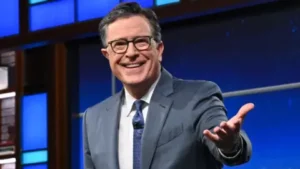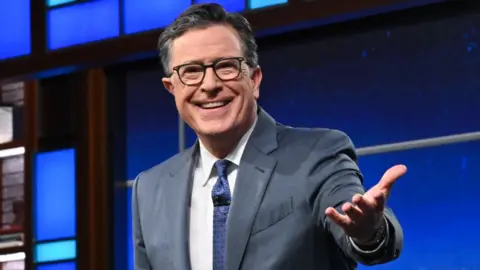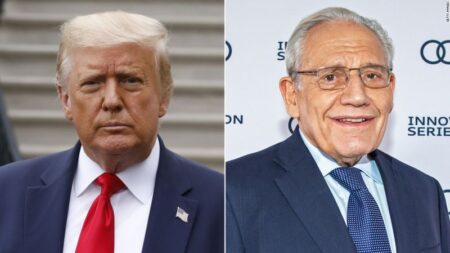The announcement from Stephen Colbert regarding the cancellation of *The Late Show* has sent shockwaves through the entertainment world. Colbert revealed that the popular late-night series, which he has hosted since 2015, will conclude in May 2026, marking an unexpected end to a show that has become synonymous with late-night television culture in the U.S. The cancellation is notable not just for its immediate impact but also for the potential implications it may hold for the future of the late-night chat show format in America.
Historically, late-night programming has thrived in the United States, which admired but struggled to replicate this format elsewhere, notably in the UK. Emma Bullimore, a TV critic, describes late-night shows as integral to American television culture, akin to the prevalence of soap operas or quiz shows in British media. This cancellation, coupled with how it was announced, raised eyebrows and sparked discussions among viewers and critics alike. Many fans expressed disbelief, stating that *The Late Show* is an institution, and its demise feels like a significant loss for late-night television.
Moreover, the principles that underlie the traditional chat show format are now under scrutiny. Frances Taylor, the TV Previews Editor at Radio Times, points out that the rapid transformation of media consumption, particularly with the rise of streaming and social media, makes the nightly topical format of chat shows less compatible with audience preferences. Today’s viewers are often already informed about major news stories by the time these shows air, diminishing their relevance. As audiences shift toward streaming platforms that offer more enduring content, such as dramas and documentaries, it becomes harder for late-night shows to capture and retain interest.
The hospitality industry surrounding celebrity promotions is also shifting. Bookers often find it challenging to secure high-profile guests, as many celebrities now prefer to appear on social media or web-based platforms where they can control their narratives more safely. For instance, shows like *Chicken Shop Date* or *Snack Wars* provide a low-pressure environment for stars, offering a stark contrast to the intense atmosphere of traditional talk shows where hard-hitting questions might arise.
Despite adaptations made over the years, such as segments designed for virality, the statistics paint a concerning picture for conventional late-night formats. While Colbert has a notable following, with eight million subscribers on YouTube, it pales compared to Jimmy Kimmel’s 20 million and Jimmy Fallon’s 32 million followers. The landscape has become increasingly competitive, and traditional television’s advertising revenue—an essential financial backbone—has sharply declined, leaving many late-night shows scrambling for financial viability.
Financial constraints have indeed been cited as a primary reason behind *The Late Show*’s cancellation. Producing a late-night show involves significant costs related to crew salaries, technical expenses, and host fees. In today’s environment, YouTube influencers and online personalities can produce high-quality content at a fraction of the price, which applies immense pressure on traditional programs to either scale back or re-evaluate their operations.
However, more questions arise surrounding the reasons for the show’s abrupt termination, especially in the political climate of the current era. Colbert has been a consistent critic of the Trump administration, frequently using his platform to address political issues. Some speculate that political pressures may have played a role in the show’s cancellation, particularly in light of CBS’s recent settlement with Trump over a contentious interview, leading to discussions among lawmakers about the implications of such a decision.
As the landscape of late-night television continues to evolve, it remains uncertain what the future holds for both Colbert and the broader format itself. Viewers and industry insiders alike are left to ponder the implications of *The Late Show*’s cancellation, heralding a potential pivot in the late-night conversation amid an otherwise familiar and trusted genre of entertainment. The cultural impact of such a change could resonate far beyond just audiences and host dynamics, challenging the very essence of how late-night entertainment is perceived and consumed moving forward.











